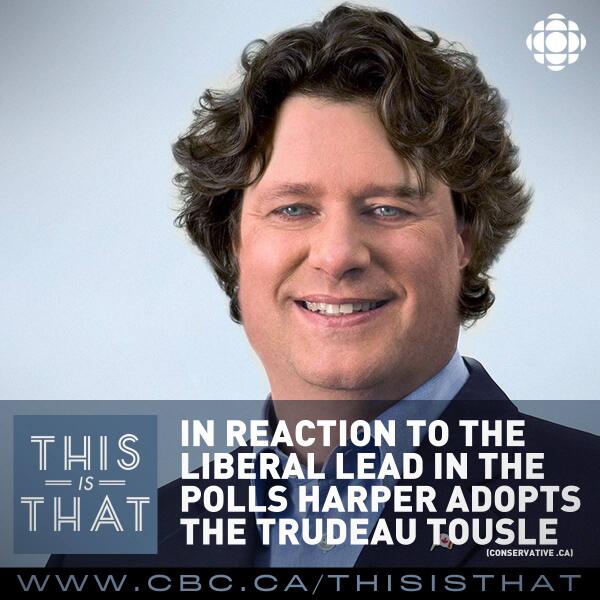This is quite untrue. Harper and Flaherty did nothing to protect us from the '08 recession, and decisions in 2006 actually made it worse than it should have been. There's is also risk in our mortgage sector today that dates back to their decisions in 2006.
In 2006 Jim Flaherty, against the wishes of Canada's largest banks (who were notoriously low-risk), changed legislation to deregulate the mortgage sector. He opened up the Canadian mortgage sector to US financial institutions, and increased the government insurable mortgage cap from $100 billion to $200 billion. He opened up the market to 40-year amortization periods with no down payments, introducing massive systemic risk identical to the same situation as in the US. I'll go into why this didn't crash the Canadian economy, like it did in the US, a bit later.
After that deregulation occurred, housing prices jumped. The bottom price floor for small real estate markets jumped from an average of 80k to 100,000k in two years. The largest markets, particularly Vancouver, Toronto, Calgary and Edmonton, saw massive increases in average real estate prices immediately after this deregulation occurred. From 2006 to 2008 these markets saw increases of $50k-$100k (adjusted for inflation, fixed to 1980 currency value - so the real increase was significantly higher). I don't have the statistics in Saskatoon (where I live), but it was equally terrible. My sister bought her house in 2005 for $90k and sold it in 2008, after minimal renos, for $220k.
The reason why this didn't tank our economy, like it did in the US, is that:
A) This only lasted for two years before the global recession hit, where as in the US it had been going on for much longer.
B) In 2008, the government acted fast to purchase roughly $70 billion in insured and safe mortgages from Canadian banks to ensure banks had a competitive advantage and remained highly liquid, while many banks also got money from US programs like TARP (estimated figures at around a total of $144 billion). Some banks received more money than the entire companies worth (i.e. we payed more for these mortgages than if we had bought every single share in the company and taken it over). But, we couldn't buy the companies, because the purpose of this action was to enhance liquidity - buying the banks wouldn't have fixed that.
C) Canadian bankruptcy laws make it extremely hard for defaulters to escape loan payments. As such, the government didn't really lose money on those mortgages they bought from the banks. Also, Canadians are generally more fiscally reliable, and default at lower rates vs. the US.
D) Flaherty finally caved from the pressure of the big Canadian banks and parliament, and reversed re-introduced legislation to annul his legislation in '06. He did it twice, lowering it from 40 to 35 and then to 35 to 30, and now it has been lowered once again, and is back at it's original 25 years (with 5% down).
Harper absolutely did not cause the recession in any way. But the result of his and Flaherty's decision, by making the same fatal error that US economists like Greenspan made in the 90s, resulted in a massive increase in housing prices never seen before in the Canadian real estate market (creating a bubble in Vancouver and Toronto, susceptible to bursting in the future). So the worst is possibly yet to come, particularly if the global economy dips into another recession, or if the Canadian economy remains in a prolonged recession. At best, we can expect real estate prices to stagnate for a long period of time in these major markets until prices are corrected naturally (if no bursting actually happens).
In reality, the fact that Canada didn't go into a strong recession in '08 was because the Cons inherited a ridiculously strong economy from the Liberals and because our banks had low-risk positions that insulated all of us from the recession (and other factors). But it's not like, at that time, the federal Cons had much to do with any of that.
And this isn't even going into some poor post-2008 policies of the Conservatives that never really spurred significant economic growth, job growth, real-estate price corrections, or deficit reversal. This is probably due to the fact that their entire worldview, economic theory, and political philosophy is idealistic libertarian reaching that has no bearing in reality. I'm just thankful they didn't act on more of their bullshit ideas about the role of government, because we'd be much worse off if they had.
Some further reading:
https://s3.amazonaws.com/policyalte...nal Office/2010/08/Canadas_Housing_Bubble.pdf
http://www.cbc.ca/news/business/banks-got-114b-from-governments-during-recession-1.1145997
http://thetyee.ca/Views/2008/10/08/HarperEcon/
http://www.macleans.ca/politics/ottawa/jim-flaherty-vs-mortgage-amortization/
http://prudentpress.com/finance/risky-mortgages-deregulation-of-canadas-financial-market-pt-8/










